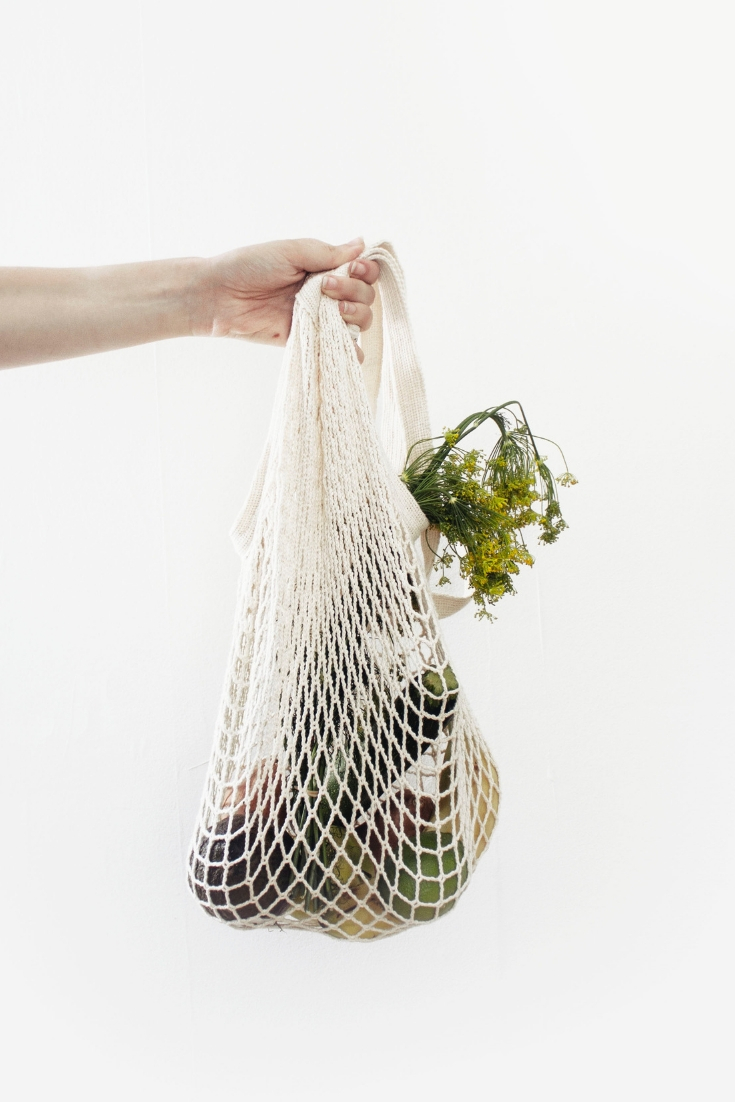
One of my closest friends is currently in Grad School learning about sustainability in the fashion industry. More specifically, how to regulate and restructure the thousands of fashion houses contributing to our global carbon footprint. Needless to say she’s learned a lot about how our actions and purchases are impacting our planet, and has been educating myself and all of her family and friends on these issues (go Liz!). Well as you can probably guess it has rubbed off on me greatly and has quickly become a passion of mine, too.
Generationally, I feel as though us Millennials and Gen-X’s are much more receptive and open to learning about the environment and sustainability. But there is still much to be done, and if Lizzy has taught me anything it’s that even the smallest changes can make a huge impact. For any of you who are looking for a way to contribute, here are five simple ways to make a difference.
one. purchase a re-usable water bottle
I’ll be frank- there is no reason for anyone to be purchasing single use plastic water bottles anymore. None! Nearly every public building offers water fountains, restaurants offer paper cups, and offices provide water bubblers. Single use plastics like water bottles can take several hundred years to decompose, if at all. It is estimated nearly 8 million tons of that plastic waste ends up in our oceans, killing wildlife and suffocating the earth. And that number is growing.
To make matters worse, plastic leaches into everything it touches. So that water they claim was taken from a natural spring is probably contaminated with plastic compounds. Using just one water pitcher filter can effectively replace up to 300 plastic water bottles. Even better, one glass water bottle can last well up to 10 years. Not only are you saving money, but also eliminating the need for millions of single use bottles to ever be produced.
*Tip: add chia seeds to your water for added protein and a sneaky way to keep yourself feeling full throughout the day.
two. make the switch to glass food storage
A simple way to protect your health and limit your plastic consumption is to make the switch to glass food storage containers. Just like with plastic water bottles, plastic Tupperware can leach into your food every time you microwave it or wash it in the dishwasher (no matter how dishwasher safe it claims to be). Glass food storage is a much safer and cost effective way to store your leftovers and meal prep for the week.
Another great place to switch to glass is in the pantry. Many pantry staples like flours, nuts and seeds, sugars and rices come pre-packaged inside plastic bags. Buying in bulk or weighing it out in the store helps to cut down on the pre-packaging waste as well.
*Tip: Store all of your favorite pantry staples in mason jars. This makes it easy to see what’s inside, prevents plastic leaching, and prolongs the shelf life!
three. invest in re-usable cutlery
One of the most common single use plastics are plastic utensils. Whether you’re bringing food to work or eating out at a cafe, packing a set of reusable cutlery helps to cut down on unneccesary waste. Using one plastic fork per day, 5 days a week for a month means at least 20 pieces of plastic are being improperly disposed of. And even if you do recycle, much of the words plastic and paper waste ends up in a landfill anyways.
Thankfully more and more companies are starting to get onboard the sustainability bandwagon and are creating many reusable and biodegradable products. I personally use a Bambu Spork that Lizzy gifted to me for Christmas and love it. The less single use plastics out there the better, and this is one simple way to start.
*Tip: Keep your cutlery and reusable straws inside a clean bag and store it in your purse or backpack. This keeps it clean and keeping it with you ensures you are always prepared.
four. bring your own grocery and produce bags
One of my favorite things to do is go grocery shopping (I know, I am a granny). I have noticed more and more stores are eliminating plastic grocery bags and offering a discount on your purchase for providing your own bags. All the more reason to start, right?
Re-usable shopping bags are inexpensive and usually sold in the grocery store for your convenience. They even have reusable and organic produce bags that you can purchase. All of those bags you use one time often end up in the ocean for a lifetime.
*Tip: Try to keep a set of bags in your car and purse for those spontaneous grocery store trips.
five. keep your purchases close to home
Buying local- whether it be food, clothes, or any goods- is a great way to not only support your local economy, but cut down on carbon emissions from shipping. With companies like Amazon at our fingertips, we can get products from the other side of the world in a matter of days. What most people don’t realize, however, is how shipping it here is impacting our environment.
While a trip to the mall to pick up that shirt you want is using gas in your car, it is still far better than putting it on a plane and flying it half way around the world. The same can be said for produce and many food items that are imported in from other countries. Sure, those locally grown apples might cost a dollar or two more, but you’ll be supporting a local business and helping to cut back on emissions one bite at a time.
*Tip: When placing online orders, choose ground shipping. For Amazon users, select “No Rush” Shipping (they usually give you a $1 digital goods credit as a perk).
Learn anything new? Have any suggestions? Drop me a line in the comments below.





